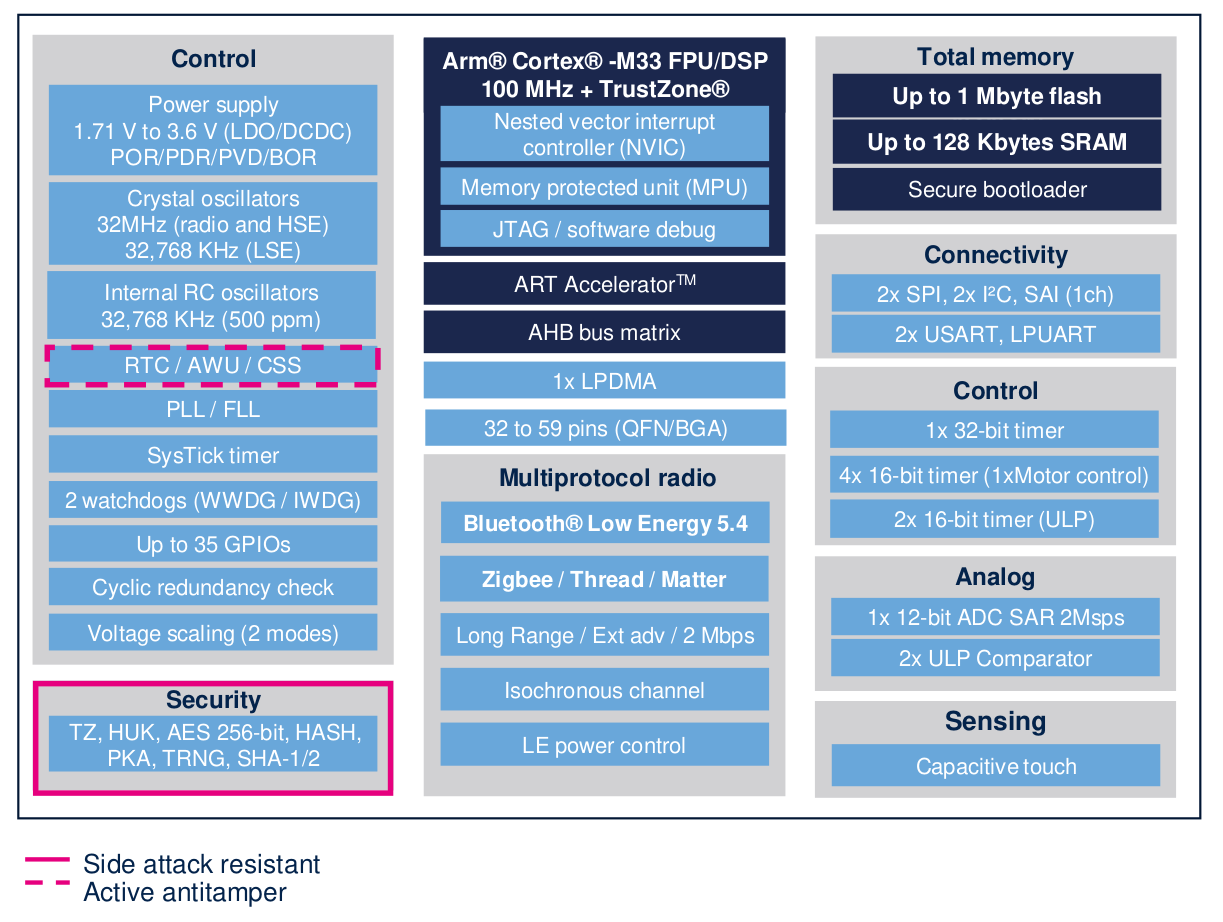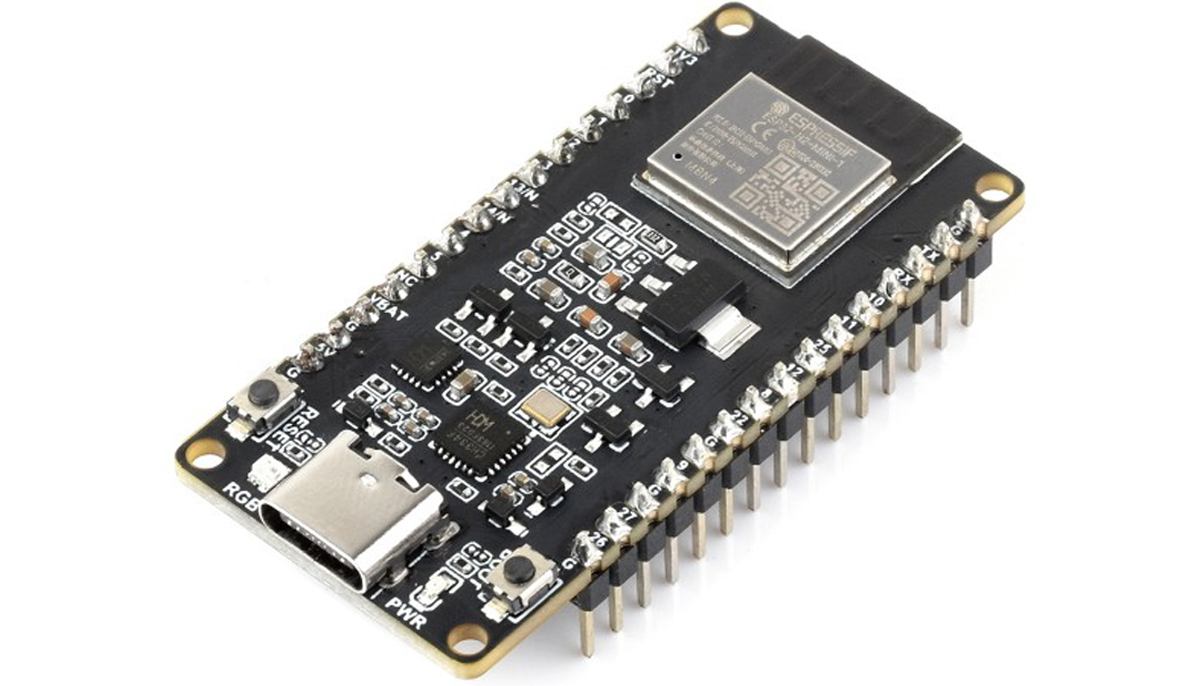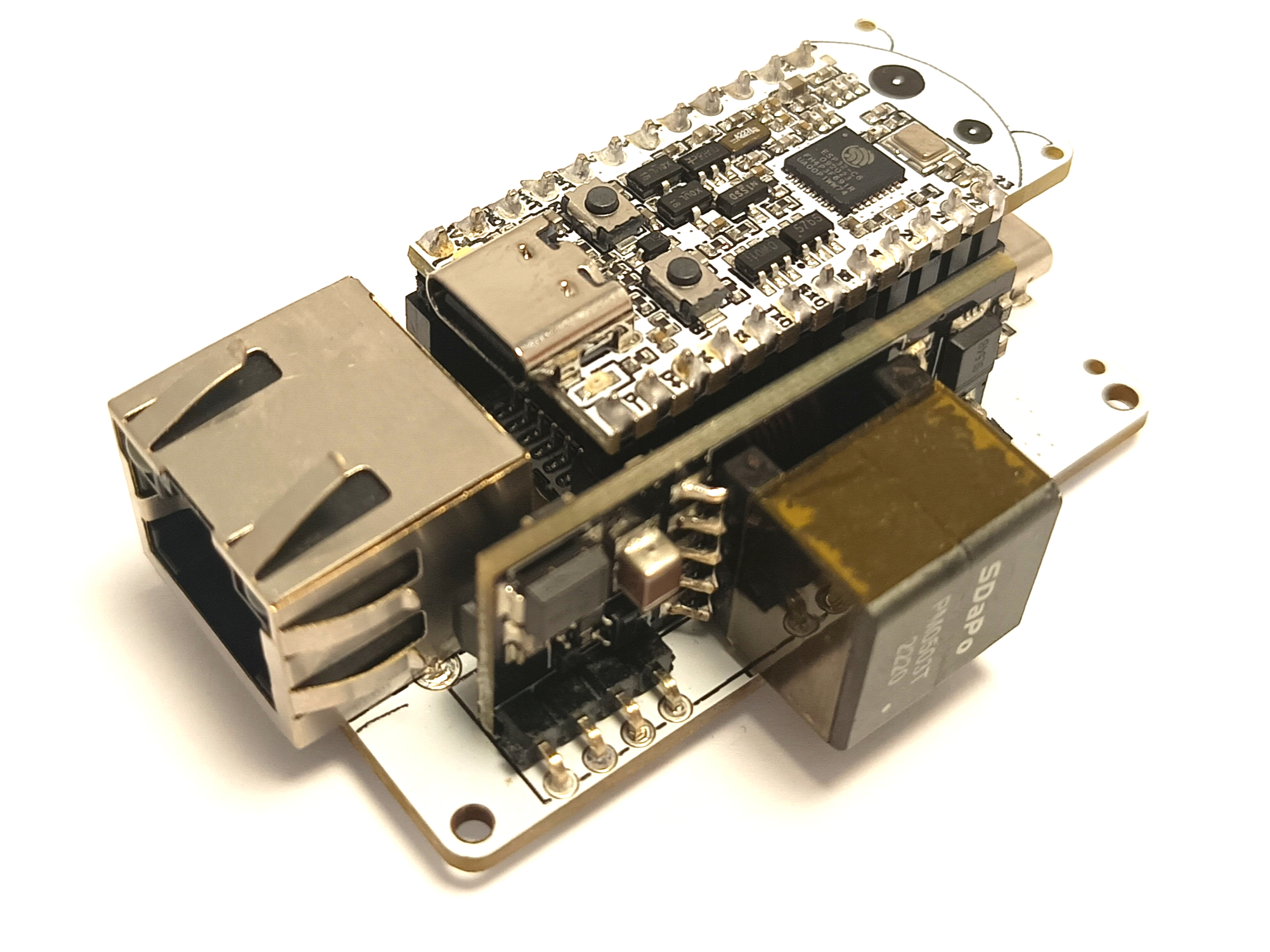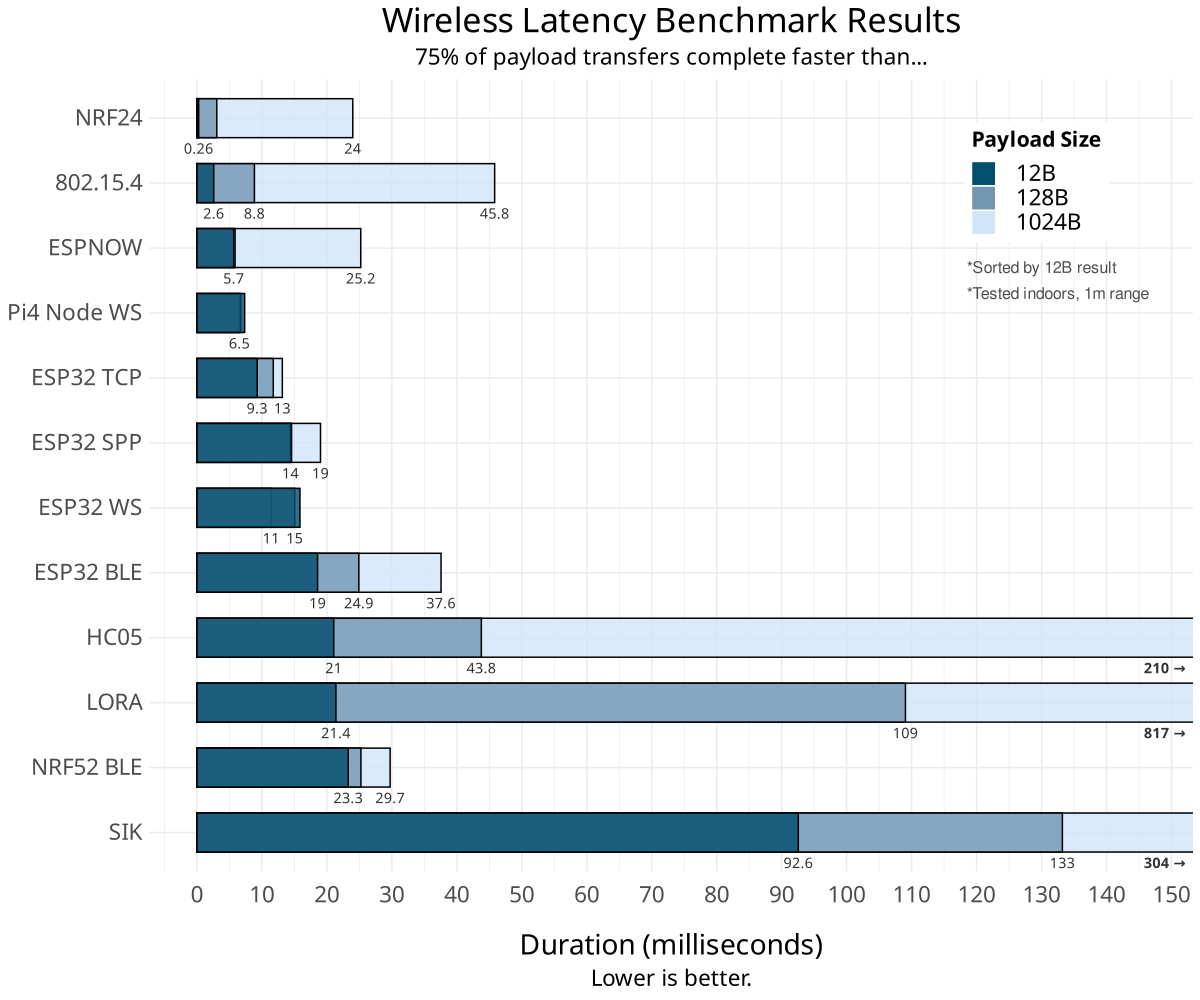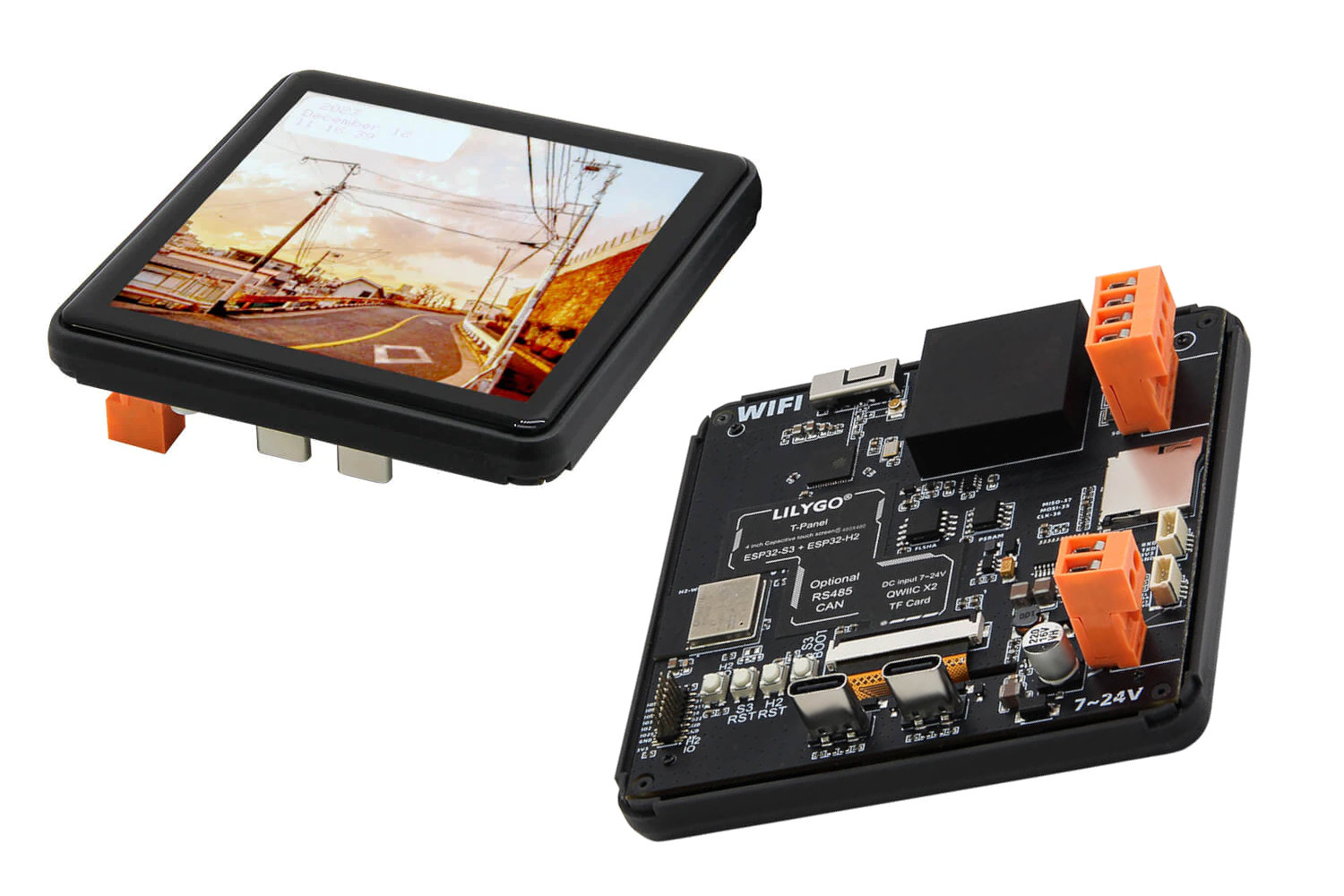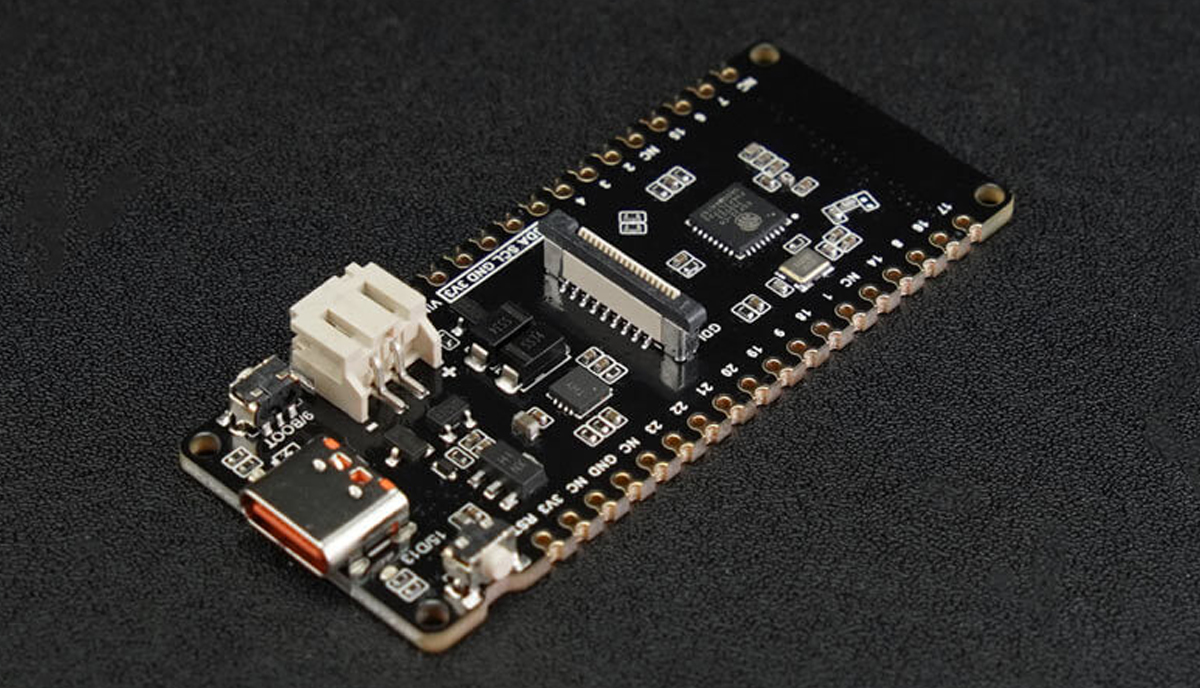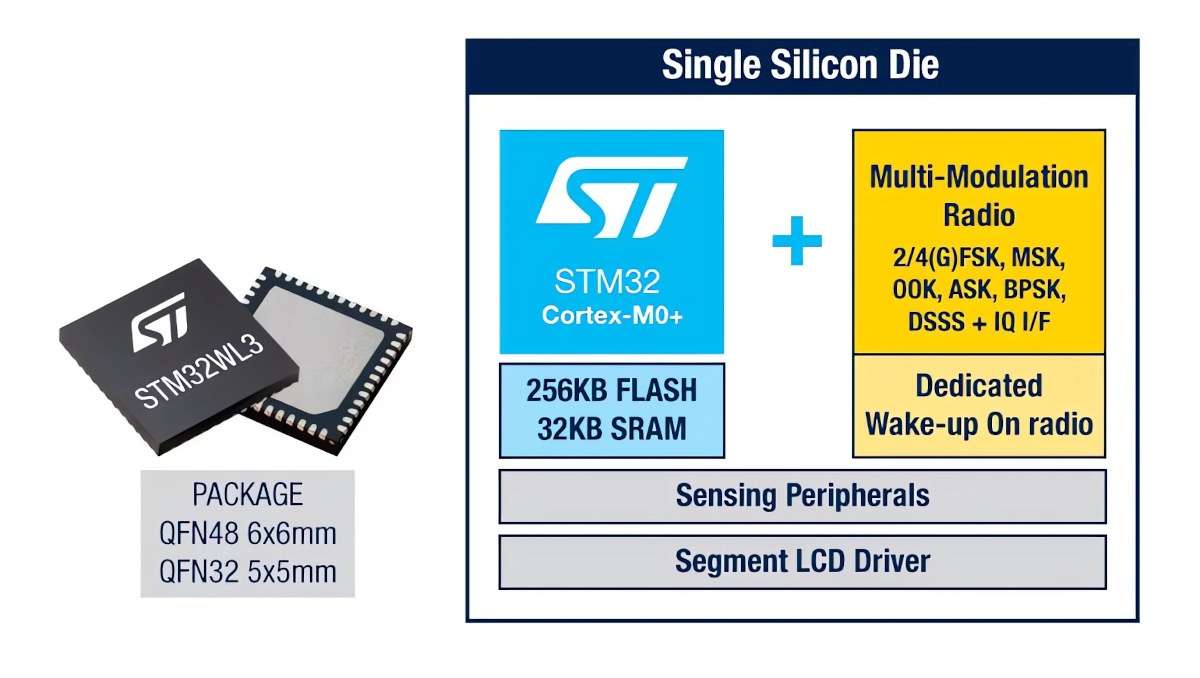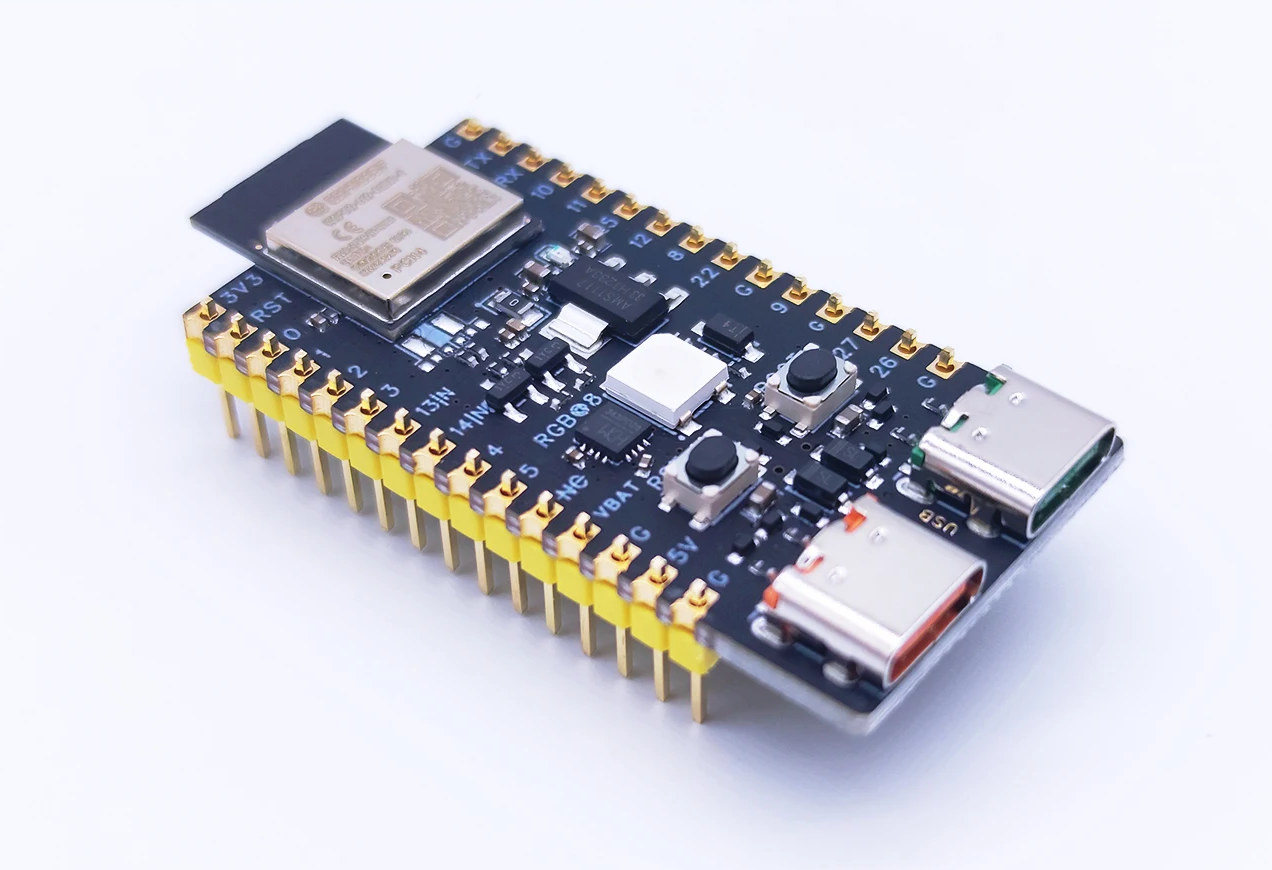STMicro’s new STM32WBA series, starting with the STM32WBA52, STM32WBA54, and STM32WBA55 devices, is a family of Arm Cortex-M33 wireless microcontrollers with Bluetooth LE 5.4, Zigbee, Thread, and Matter connectivity that achieved the SESIP (Security Evaluation Standard for IoT Platforms) Level 3 security certification and should make them compliant with US Cyber Trust Mark and EU Radio Equipment Directive (RED) regulations due to become mandatory in 2025. The 100MHz STM32WBA54 and STM32WBA55 microcontrollers come with up to 1MB of flash memory, support Arm TrustZone architecture isolating secure processes and storage, and incorporate background autonomous mode, flexible power-saving states, and analog and digital peripherals found in STMicro STM32U5 ultra-low-power MCUs. STM32WBA54 and STM32WBA55 specifications: MCU core – Arm Cortex-M33 at 100MHz with FPU and DSP Memory – Up to 128KB SRAM Storage – Up to 1 MB flash Wireless Bluetooth Low Energy 5.4 Long Range (LR) capable Up to 2 Mbps Bluetooth […]
Waveshare ESP32-H2-DEV-KIT-N4-M – A Low-cost ESP32-H2 development board going for $6.65
The Waveshare ESP32-H2-DEV-KIT-N4-M is a development board based on the ESP32-H2, available for only $6.65 on Aliexpress, but you’ll also find it on Amazon and Waveshare’s official store. This is a significant price drop compared to last year’s official Espressif ESP32-H2-DevKitM-1 board, which was priced at $10 without including shipping costs and with a similar design. In 2021, Espressif Systems introduced the ESP32-H2 to the world. However, it wasn’t until 2023 that they released their first development board. Since then, there haven’t been many products built around this new module. Some exceptions include the Olimex ESP32-H2-DevKit-LiPo, LILYGO T-Panel, and the ESP Thread Border Router/Zigbee Gateway board, all of which feature the ESP32-H2 chip. Waveshare ESP32-H2-DEV-KIT-N4-M specifications: Wireless module – ESP32-H2-MINI-1 MCU – Espressif Systems ESP32-H2 32-bit RISC-V microcontroller at up to 96 MHz with 320 KB SRAM, 128 KB ROM, 4 KB LP memory, Bluetooth 5.2 LE/Mesh, and 802.15.4 (Zigbee/Thread/Matter) radios. […]
ESP32-C6-Bug WiFi 6, Bluetooth LE, and 802.15.4 board takes a PoE Ethernet shield (Crowdfunding)
We’ve already covered a range of ESP32-C6 boards, but none supporting Ethernet and PoE so far, and the ESP32-C6-Bug board brings that to the table thanks to the Esp32-Bug-Eth shield with a W5500 Ethernet chip, an RJ45 jack and a PoE power module. Like other ESP32-C6 devices, the little board supports Wi-Fi 6, Bluetooth LE 5, as well as Thread and Zigbee through its 802.15.4 radio, but it also integrates some other interesting features such as castellated holes for easy soldering on a carrier board and support for LiPo batteries with built-in battery charging and protection circuits. ESP32-C6-Bug board specifications: SoC – ESP32-C6FH4 MCU cores 32-bit RISC-V core @ 160 MHz 32-bit RISC-V core @ 20 MHz low-power coprocessor can run tasks even when the main system is in deep sleep state Memory – 512 KB SRAM Storage – 4 MB Flash Wireless – WiFi 6, Bluetooth LE 5, and […]
Comparing the latency of various wireless standards
If you’ve ever wondered which wireless standard may deliver the smallest lag (latency) when transmitting small packets, we’ve now gotten an answer thanks to Scott at Electric UI who benchmarked various wireless links in common MCU development boards. More specifically the following hardware and wireless standards were tested: SiliconLabs 10×0-GM RF+8051 microcontroller with 240–960 MHz EZRadioPRO transceiver running SiK firmware HopeRF RFM95W LoRa module (on an Adafruit Breakout board) connected to an STM32F429 MCU Nordic Semi nRF24L01 2.4GHz transceiver module ESP32 board for ESP-NOW and WiFi testing is shown as ESP32 WS (WebSockets) or ESP32 TCP in the chart below. Raspberry Pi boards were also used for comparison ESP32-C6 board for 802.15.4 transfers (Thread) ESP32 and HC-05 modules for Bluetooth SPP (Serial Port Profile) ESP32 board with NimBLE and Bluedroid stacks and nRF52 for Bluetooth LE testing Here are the results for 12 bytes, 128 bytes, and 1024 bytes data transfers. […]
LILYGO T-Panel – A 4-inch HMI display and WiFi, BLE, and 802.15.4 gateway based on ESP32-S3 and ESP32-H2
LILYGO T-Panel is both a 4-inch HMI display and IoT gateway based on ESP32-S3 WiFi 4 and Bluetooth LE 5 microcontroller and an ESP32-H2 module with Bluetooth LE 5 and an 802.15.4 radio for Zigbee, Thread, and Matter connectivity. Last year, Espressif introduced the ESP-Thread Board Router/Zigbee gateway board with ESP32-S3 and ESP32-H2 to show how both chips could be combined to create IoT gateways. But I don’t think I had seen a company design a product based on both ESP32-S3 and ESP32-H2 until I saw the T-Panel which also includes an RS485 interface and Qwiic expansion connectors for good measure. T-Panel specifications: Wireless chips/modules Wireless SoC – ESP32-S3R8 dual-core Tensilica LX7 microcontroller @ 240 MHz 2.4 GHz 802.11n WiFi 4 and Bluetooth 5.0 LE connectivity Memory – 8MB PSRAM Wireless module – ESP32-H2-MINI-1 module MCU – Espressif Systems ESP32-H2 32-bit RISC-V microcontroller at up to 96 MHz with 320 […]
This new ESP32-C6-based IoT development board supports solar battery charging
DFRobot’s FireBeetle 2 ESP32-C6 is an IoT Development Board with 802.11ax (now called Wi-Fi 6), Bluetooth 5, Zigbee 3.0, Thread 1.3, and flexible power options including USB Type-C, 5V DC, and a CN3165 Lithium Ion battery charger for solar-powered systems. This isn’t the first solar-based board we’ve covered. We’ve also explored boards like Conexio Stratus, Wisblock Kit 2, and RAK8211-NB iTracker along with other solar-powered devices such as solar-powered laptops, solar-powered headphones, and even a solar-based power supply. FireBeetle 2 ESP32-C6 IoT Development Board Specifications: Processor – ESP32-C6 RISC-V single-core, 160 MHz Memory SRAM – 512KB ROM – 320KB Flash – 4MB RTC SRAM – 16KB USB – USB 2.0 CDC Wi-Fi Protocols – IEEE 802.11b/g/n, IEEE 802.11ax (20 MHz-only non-AP mode) Bandwidth – Supports 20 MHz and 40 MHz at 2.4 GHz Modes – Station, SoftAP, SoftAP+Station Frequency – 2.4GHz Frame Aggregation – TX/RX A-MPDU, TX/RX A-MSDU Bluetooth Protocol […]
STMicro STM32WL3 sub-GHz wireless MCU targets smart metering, smart building, and industrial monitoring
STMicroelectronics STM32WL3 is an Arm Cortex-M0+ low-power, long-range, multi-protocol wireless microcontroller working in sub-GHz ISM frequency bands, namely 413MHz – 479MHz, 826MHz – 958MHz, and soon 169MHz (2024) for protocols such as wireless M-Bus (mode N) and Wize. The multi-protocol and multi-modulation radio supports 4-(G)FSK up to 600kbit/s, 2-(G)FSK, (G)MSK, DBPSK, DSSS, OOK, ASK modulation schemes suitable for proprietary and standardized wireless protocols such as Sigfox, KNX, WiSun, mioty, M-Bus, and others. STMicro also claims to have implemented new power-saving features that extend the battery life to up to 15 years. STM32WL3 key features and specifications: MCU Core – Arm Cortex-M0+ up to 64 MHz Memory – 16KB or 32KB SRAM with full retention Storage 128KB or 256KB flash 1 KB OTP flash (user data) Wireless RF bands – 413-479 MHz, 826-958 MHz, and soon 169 MHz Data rate – 0.1 to 600 kbit/s Tx power – up to […]
WeAct ESP32H2-N4 – A $6 Bluetooth 5.2 LE, Zigbee 3.0, and Thread development board
WeAct ESP32H2-N4 is a low-cost ESP32-H2 development board with Bluetooth 5.2 LE, Zigbee 3.0, and Thread connectivity with a design very similar to the one of Espressif Systems’ ESP32-H2-DevKitM-1 development board, but sold for just $5.70 plus shipping. The ESP32-H2 wireless microcontroller is basically the little brother of the ESP32-C6 without WiFi and aims at low-power nodes in short-range IoT networks. We have previously seen it in Espressif hardware like the aforementioned ESP32-H2-DevKitM-1 and the ESP Thread Border Router board combining ESP32-H2 & ESP32-S3 wireless chips, but so far not in third-party boards, and WeAct ESP32H2-N4 changes that. WeAct ESP32H2-N4 specifications: Wireless module – ESP32-H2-MINI-1 MCU – Espressif Systems ESP32-H2 32-bit RISC-V microcontroller at up to 96 MHz with 320 KB SRAM, 128 KB ROM, 4 KB LP memory, Bluetooth 5.2 LE/Mesh and 802.15.4 (Zigbee/Thread/Matter) radios. Storage – 4MB flash storage PCB antenna Dimensions – 13.2×16.6×2.4 mm USB – 2x […]


